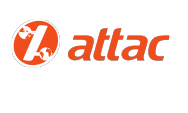Tax havens: An assault on democracy
More than 50 countries have specialised on taxing capital income of other countries´ citizens at low or zero tax rates. More than 12 trillion US Dollars are administered in these tax haven countries. As a consequence of the globalisation of financial markets these havens have become a serious threat to democracy. This is why Attac demands political measures in order to close down all tax havens. At the same time we know that tax havens are more than smaller countries such as Switzerland, Austria, Liechtenstein, Monaco, Luxemburg, Andorra and the Cayman Islands. Certainly classical tax haven countries have profited a lot from their tax bargains at the expense of their neighbours, and belong therefore to the richest countries in the world. But the financial centres of Britain, the US, Germany and France equally have features of tax havens. This is why our demands are directed to all states rather than only to the tax havens themselves.
Through the low tax rates of some countries, a rapid global race to the bottom in the taxation of capital income has developed. Tax rates on interest, dividends and capital gains are falling as well as the rates on companies´ profits. Furthermore, the top marginal income tax rate is globally under pressure. While the tax rate on corporate profits in the EU stood at 44% in 1980 it had fallen by 2007 to 29% (KPMG 2007). No developed economy could escape this loss. In the times of globalisation of financial markets, nation states are not free anymore to determine tax rates on capital income democratically. They rather have to follow the dictate of financial markets and tax havens.
These changes have dramatic consequences for democracy. Capital and thus capital income are distributed very unequally. In Austria and Germany, 10% of the population own more than two thirds of the wealth, while two thirds of the population own more-or-less nothing or are indebted. In France, the top 10% own 46%, globally they own even 85% of the wealth. If one cannot tax capital income at all or to an adaquate extend, this money is missing for the provision of public goods, services and institutions such as schools, health care, environmental protection, public transport, universities and care of old people. All these need redistributive financing. Money is also lacking in the public finances of developing countries which loose at least 50 bn US-Dollars annually because of tax havens. They also suffer particularly under the corruption which is enabled and helped by the nontransparent structures of tax havens.
If wealthy individuals and transnational corporations cannot be taxed anymore, it is unlikely that the rest of society will be ready and capable of financing public goods sufficiently. The burden on the population of taxes on consumption and wages has been growing increasingly, and understandably this is perceived as unjust. Since the Declaration of the Rights of Man and the Citizens (1789), it is the right of citizens to democratically determine the distribution of the tax burden and thus the degree of acceptable inequalities in a society. This fundamental democratic right is in danger of being destroyed in the process of globalisation. But a society which can no longer control inequality and insecurity itself becomes unstable and insecure. Thus, this globalisation has the capacity to destroy itself.
Attac does not accept this as a fate. We demand another globalisation. We are convinced that democracy and social redistribution is not only possible but is even more needed in times of globalisation.
Tax havens have to be shut down. Therefore, we demand:
- A global financial system needs transparency in order to render just taxes possible now and in the future. States have to inform each other automatically about all taxable income of foreign citizens. The corresponding savings´ tax directive of the EU must be extended to all forms of capital income and legal entitities as well as to more states.
- It is not sufficient, as the governments of Austria, Liechtenstein and Monaco propose, to simply give administrative assistance in individual cases of tax fraud. A "clean financial centre" also requires more than measures against money laundering and for financial stability. We expect of all states that effective measures against international tax evasion be taken.
- Furthermore, a common market such as the European Economic Area (EEA) needs common tax regulations. In order to stop corporate tax manipulations, common rules for calculating corporate tax bases are necessary. Furthermore, minimum tax rates, e.g. 30%, must be applied to capital income in order to stop the harmful race to the bottom.
- Tax haven, which refuse to support other countries seeking to apply their tax laws to all citizens, misuse their sovereignty in a time of globalisation. Countries, which want to act against tax havens, should put those countries on a "black list" which follows stricter criteria than the ones of the OECD. Tax havens should not profit from the advantages of open access to trade and financial markets and free movement of people such as the Schengen agreement.
The scandal over tax evasion carried out with the help of foundations in Liechtenstein has demonstrated again the importance of the work of the international Attac movement. We will continue with our work until the tax havens are closed through national and international political measures. So far, these measures have been blocked by the few who profit from international tax competition. The dedication of citizens to our movement for another globalisation is the precondition for the realisation of our demands.
Attac Austria
Attac Belgium
Attac Finland
Attac France
Attac Germany
Attac Greece
Attac Hungary
Attac Jersey
Attac Netherlands
Attac Poland
Attac Spain
Attac Switzerland



